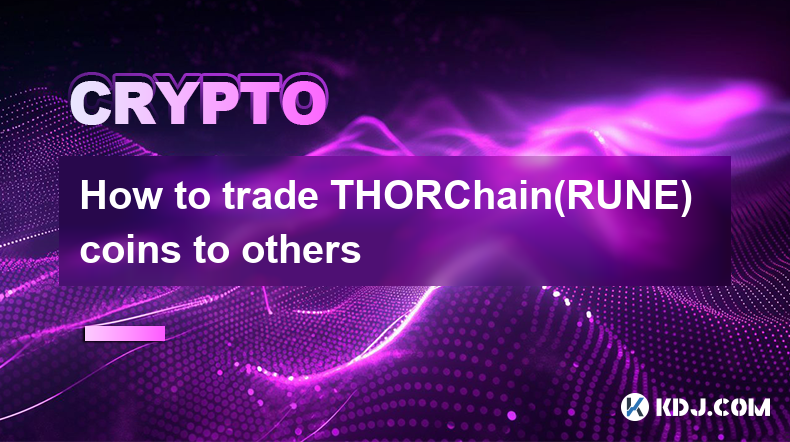-
 Bitcoin
Bitcoin $94,549.4792
-0.20% -
 Ethereum
Ethereum $1,814.6073
-0.07% -
 Tether USDt
Tether USDt $0.9999
-0.04% -
 XRP
XRP $2.1325
-1.60% -
 BNB
BNB $599.1072
1.83% -
 Solana
Solana $146.2701
0.71% -
 USDC
USDC $1.0000
-0.02% -
 Dogecoin
Dogecoin $0.1703
-0.72% -
 TRON
TRON $0.2476
0.00% -
 Cardano
Cardano $0.6613
-2.33% -
 Sui
Sui $3.3801
3.93% -
 Chainlink
Chainlink $13.6419
-2.28% -
 Avalanche
Avalanche $19.6800
-1.77% -
 UNUS SED LEO
UNUS SED LEO $8.6644
-4.59% -
 Stellar
Stellar $0.2578
-3.74% -
 Shiba Inu
Shiba Inu $0.0...01267
-0.67% -
 Toncoin
Toncoin $2.9659
-1.86% -
 Hedera
Hedera $0.1732
-2.33% -
 Bitcoin Cash
Bitcoin Cash $353.2159
-1.53% -
 Hyperliquid
Hyperliquid $20.2920
0.86% -
 Litecoin
Litecoin $83.3490
-2.64% -
 Polkadot
Polkadot $3.9205
-0.87% -
 Dai
Dai $1.0001
0.01% -
 Monero
Monero $278.0779
-0.17% -
 Bitget Token
Bitget Token $4.2978
-0.79% -
 Ethena USDe
Ethena USDe $1.0005
0.01% -
 Pi
Pi $0.5878
-0.82% -
 Pepe
Pepe $0.0...07905
-3.51% -
 Bittensor
Bittensor $374.8447
8.49% -
 Uniswap
Uniswap $4.9616
-1.43%
How to trade THORChain(RUNE) coins to others
To trade RUNE coins, you need to set up a THORChain wallet, fund it, locate a counterparty, negotiate terms, execute the swap, verify it, and then withdraw your RUNE back to your own wallet.
Dec 08, 2024 at 02:50 am

How to Trade THORChain (RUNE) Coins to Others
THORChain (RUNE) is a decentralized cross-chain liquidity protocol that allows users to trade cryptocurrencies directly between different blockchains without the need for an intermediary. This makes it possible to trade between different cryptocurrencies, such as Bitcoin (BTC) and Ethereum (ETH), directly on the THORChain network, without having to go through a centralized exchange.
If you are interested in trading RUNE coins, there are a few things you will need to do:
1. Create a THORChain Wallet
The first step is to create a THORChain wallet. This will allow you to store your RUNE coins and interact with the THORChain network. There are a few different THORChain wallets available, so you can choose the one that best suits your needs.
2. Deposit RUNE Coins into Your Wallet
Once you have created a THORChain wallet, you will need to deposit RUNE coins into it. You can do this by sending RUNE coins from another exchange or wallet to your THORChain wallet address.
3. Find a Counterparty
Once you have RUNE coins in your wallet, you will need to find a counterparty to trade with. You can do this by using the THORChain trading interface or by using a decentralized exchange (DEX).
4. Negotiate the Terms of the Trade
Once you have found a counterparty, you will need to negotiate the terms of the trade. This includes agreeing on the exchange rate, the amount of RUNE coins to be traded, and the delivery method.
5. Execute the Trade
Once the terms of the trade have been agreed upon, you can execute the trade. This involves sending the RUNE coins to the counterparty's wallet address and receiving the desired cryptocurrency in return.
6. Confirm the Trade
Once the trade has been executed, you should confirm the trade with the counterparty. This involves checking that the correct amount of RUNE coins has been sent and received.
7. Withdraw Your RUNE Coins
Once the trade has been confirmed, you can withdraw your RUNE coins from the THORChain network. You can do this by sending the RUNE coins from your THORChain wallet address to your personal wallet address.
Additional Tips for Trading RUNE Coins
Here are a few additional tips for trading RUNE coins:
- Be aware of the risks involved in trading cryptocurrencies. The cryptocurrency market is volatile, and the value of RUNE coins can fluctuate significantly.
- Do your research before trading RUNE coins. Make sure you understand the technology behind THORChain and the risks involved in trading cryptocurrencies.
- Only trade with trusted counterparties. When you are trading RUNE coins, it is important to make sure that you are trading with a trusted counterparty.
- Use a secure wallet to store your RUNE coins. When you are not trading RUNE coins, it is important to store them in a secure wallet. This will help to protect your coins from theft or loss.
Disclaimer:info@kdj.com
The information provided is not trading advice. kdj.com does not assume any responsibility for any investments made based on the information provided in this article. Cryptocurrencies are highly volatile and it is highly recommended that you invest with caution after thorough research!
If you believe that the content used on this website infringes your copyright, please contact us immediately (info@kdj.com) and we will delete it promptly.
- Meme Coins Face Resistance This May After April Surges
- 2025-05-06 09:15:12
- Cedar DAO Launches on Solana, Bringing Triple Rewards to Its Holders
- 2025-05-06 09:15:12
- Pepeto faces Pepe in the meme war, can either make x100, best time to buy Pepe now?
- 2025-05-06 09:10:11
- Pepeto: The Next Chapter in Frog-Themed Crypto Evolution
- 2025-05-06 09:10:11
- The PI Coin price has struggled to gain momentum amid plummeting trading volumes and skepticism over unconfirmed partnership claims.
- 2025-05-06 09:06:22
- Indonesia Temporarily Suspends Operations of Worldcoin, a Digital Identity Project
- 2025-05-06 09:06:22
Related knowledge

BSV transaction fees suddenly increased? How to adjust the handling fee to save costs?
May 02,2025 at 06:42am
Understanding BSV Transaction FeesBSV (Bitcoin SV) aims to fulfill the original vision of Bitcoin as a peer-to-peer electronic cash system. One of the key elements in this system is the transaction fee, which compensates miners for including transactions in the blockchain. Recently, users have noticed a sudden increase in BSV transaction fees, which can...

Does BSV transaction require real-name authentication? Is anonymous trading feasible?
May 03,2025 at 03:14pm
The question of whether BSV (Bitcoin SV) transactions require real-name authentication and whether anonymous trading is feasible is a complex one, deeply intertwined with the broader dynamics of cryptocurrency regulations and blockchain technology. Let's delve into these aspects to provide a comprehensive understanding. Understanding BSV and Its Transac...

How to solve the high slippage of BSV transactions? How to choose between limit and market orders?
May 02,2025 at 09:01pm
High slippage can be a significant concern for traders dealing with Bitcoin SV (BSV) transactions. Slippage refers to the difference between the expected price of a trade and the price at which the trade is actually executed. This can occur in fast-moving markets or when there is low liquidity. To address this issue, understanding the mechanics of slipp...

What if BSV transactions are frozen? How to contact customer service to unblock the account?
May 05,2025 at 05:01am
When dealing with Bitcoin SV (BSV) transactions, encountering issues such as frozen transactions can be a stressful experience. This article will guide you through the process of understanding why BSV transactions might be frozen and how to contact customer service to unblock your account. We will cover the reasons behind frozen transactions, steps to t...

What if BSV node synchronization is slow? How to optimize local wallet performance?
May 03,2025 at 04:35pm
When dealing with BSV (Bitcoin SV) node synchronization and optimizing local wallet performance, it's crucial to understand the underlying issues and implement effective solutions. Slow synchronization and poor wallet performance can significantly hinder your experience with the BSV network. This article will delve into the reasons behind slow BSV node ...

How to check BSV transaction records? How to use the blockchain browser?
May 03,2025 at 06:50am
Checking BSV (Bitcoin SV) transaction records and using a blockchain browser are essential skills for anyone involved in the cryptocurrency space. These tools allow you to verify transactions, check wallet balances, and understand the flow of funds on the blockchain. This article will guide you through the process of checking BSV transaction records and...

BSV transaction fees suddenly increased? How to adjust the handling fee to save costs?
May 02,2025 at 06:42am
Understanding BSV Transaction FeesBSV (Bitcoin SV) aims to fulfill the original vision of Bitcoin as a peer-to-peer electronic cash system. One of the key elements in this system is the transaction fee, which compensates miners for including transactions in the blockchain. Recently, users have noticed a sudden increase in BSV transaction fees, which can...

Does BSV transaction require real-name authentication? Is anonymous trading feasible?
May 03,2025 at 03:14pm
The question of whether BSV (Bitcoin SV) transactions require real-name authentication and whether anonymous trading is feasible is a complex one, deeply intertwined with the broader dynamics of cryptocurrency regulations and blockchain technology. Let's delve into these aspects to provide a comprehensive understanding. Understanding BSV and Its Transac...

How to solve the high slippage of BSV transactions? How to choose between limit and market orders?
May 02,2025 at 09:01pm
High slippage can be a significant concern for traders dealing with Bitcoin SV (BSV) transactions. Slippage refers to the difference between the expected price of a trade and the price at which the trade is actually executed. This can occur in fast-moving markets or when there is low liquidity. To address this issue, understanding the mechanics of slipp...

What if BSV transactions are frozen? How to contact customer service to unblock the account?
May 05,2025 at 05:01am
When dealing with Bitcoin SV (BSV) transactions, encountering issues such as frozen transactions can be a stressful experience. This article will guide you through the process of understanding why BSV transactions might be frozen and how to contact customer service to unblock your account. We will cover the reasons behind frozen transactions, steps to t...

What if BSV node synchronization is slow? How to optimize local wallet performance?
May 03,2025 at 04:35pm
When dealing with BSV (Bitcoin SV) node synchronization and optimizing local wallet performance, it's crucial to understand the underlying issues and implement effective solutions. Slow synchronization and poor wallet performance can significantly hinder your experience with the BSV network. This article will delve into the reasons behind slow BSV node ...

How to check BSV transaction records? How to use the blockchain browser?
May 03,2025 at 06:50am
Checking BSV (Bitcoin SV) transaction records and using a blockchain browser are essential skills for anyone involved in the cryptocurrency space. These tools allow you to verify transactions, check wallet balances, and understand the flow of funds on the blockchain. This article will guide you through the process of checking BSV transaction records and...
See all articles




















































































